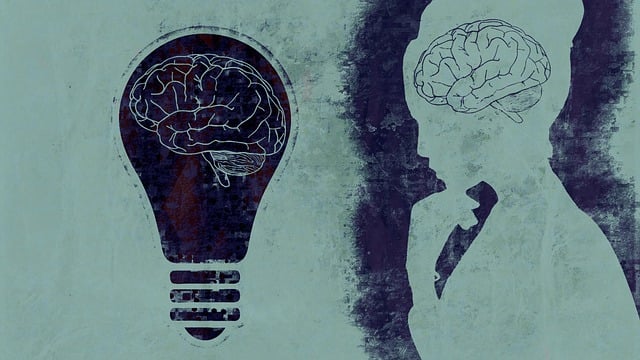Understanding a mental illness diagnosis is crucial for healing, especially from sexual abuse trauma which can lead to PTSD, depression, and anxiety. Parker Sexual Abuse Survivor Therapy (PSAST) offers specialized support tailored to each survivor's unique journey, addressing traumatic experiences and triggers through education programs that teach coping skills and stress management. This approach facilitates peer support, resource access, and promotes emotional well-being within safe therapy sessions, helping individuals process their experiences and develop effective coping mechanisms for sustainable healing.
Mental illness diagnosis and treatment navigation can be overwhelming, especially for survivors of complex trauma like sexual abuse. This comprehensive guide aims to empower individuals on their path to recovery by demystifying mental health diagnoses and exploring specialized therapies tailored to unique needs. From understanding diagnosises to finding the right support, we delve into strategies for healing. Parker’s story, a sexual abuse survivor’s journey, highlights the power of personalized therapy in overcoming challenges.
- Understanding Mental Illness Diagnoses: A Comprehensive Guide for Survivors
- The Impact of Sexual Abuse on Mental Health and the Need for Specialized Therapy
- Navigating Treatment Options: Finding the Right Support for Recovery
- Parker's Journey: Overcoming Challenges with a Tailored Therapy Approach
Understanding Mental Illness Diagnoses: A Comprehensive Guide for Survivors

Understanding a mental illness diagnosis is a crucial step for any survivor navigating their healing journey. It’s essential to see it as a tool for empowerment, offering clarity and a path forward. The process begins with Parker Sexual Abuse Survivor Therapy, which delves into the unique experiences and triggers associated with trauma. This specialized therapy helps individuals identify specific mental health conditions stemming from past abuse, such as PTSD, depression, or anxiety disorders.
Through mental health education programs design tailored to their needs, survivors gain invaluable knowledge about their condition. They learn about symptoms, coping skills development, and effective stress management strategies. Armed with this understanding, survivors can actively participate in their treatment plans, making informed decisions about the next steps towards recovery.
The Impact of Sexual Abuse on Mental Health and the Need for Specialized Therapy

Sexual abuse is a profound form of trauma that can have devastating effects on an individual’s mental health. Survivors often grapple with complex emotional and psychological challenges, including depression, anxiety, post-traumatic stress disorder (PTSD), and self-esteem issues. The impact of sexual abuse extends beyond the immediate experience; it can persist throughout one’s life, affecting relationships, daily functioning, and overall well-being.
Specialized therapy is crucial for healing and recovery, particularly Parker Sexual Abuse Survivor Therapy. This tailored approach recognizes the unique needs of survivors and focuses on inner strength development and social skills training. By implementing a community outreach program, individuals can access support, connect with peers, and gain valuable resources to navigate their mental health journey effectively.
Navigating Treatment Options: Finding the Right Support for Recovery

Navigating treatment options can be a daunting task for anyone, especially those who have experienced trauma like sexual abuse. The process involves finding professionals who understand complex issues unique to each individual’s journey. Parker Sexual Abuse Survivor Therapy offers specialized support tailored to help clients heal from deep-seated traumas and mental health challenges. This approach ensures that every step towards recovery is guided with empathy and expertise.
By prioritizing emotional well-being promotion techniques, therapy sessions create safe spaces for individuals to process their experiences and develop coping mechanisms. Addressing underlying conditions like anxiety relief is integral to this process, as it prevents burnout and fosters sustainable healing. Through individualized care, survivors can regain a sense of control and work towards rebuilding their lives, free from the burdens of past traumas.
Parker's Journey: Overcoming Challenges with a Tailored Therapy Approach

Parker’s story is a powerful example of how tailored therapy can transform lives. After experiencing sexual abuse in his childhood, Parker struggled with severe anxiety and depression, hindering his daily functioning. He found himself at a loss, navigating a complex mental health landscape. It was then that he connected with a therapist who specialized in trauma-informed care, specifically designed for sexual abuse survivors.
This personalized approach focused on addressing Parker’s unique challenges. The therapist employed creative communication strategies, such as art therapy and mindfulness exercises, to help him process his traumatic memories safely. Over time, Parker learned effective stress management techniques through workshops offered by a supportive organization dedicated to burnout prevention for healthcare providers. These tools equipped him with the skills to confront and overcome his mental health hurdles, leading to a profound sense of healing and empowerment.
In conclusion, navigating mental illness diagnosis and treatment is a complex journey. This article has provided valuable insights into understanding various aspects of this process, from comprehending mental health conditions to addressing the unique challenges faced by sexual abuse survivors. By highlighting the importance of specialized therapy, such as Parker’s tailored approach as a sexual abuse survivor, we emphasize the need for accessible and supportive resources. Embracing these strategies can significantly contribute to recovery, ensuring individuals like Parker receive the comprehensive care they deserve.













